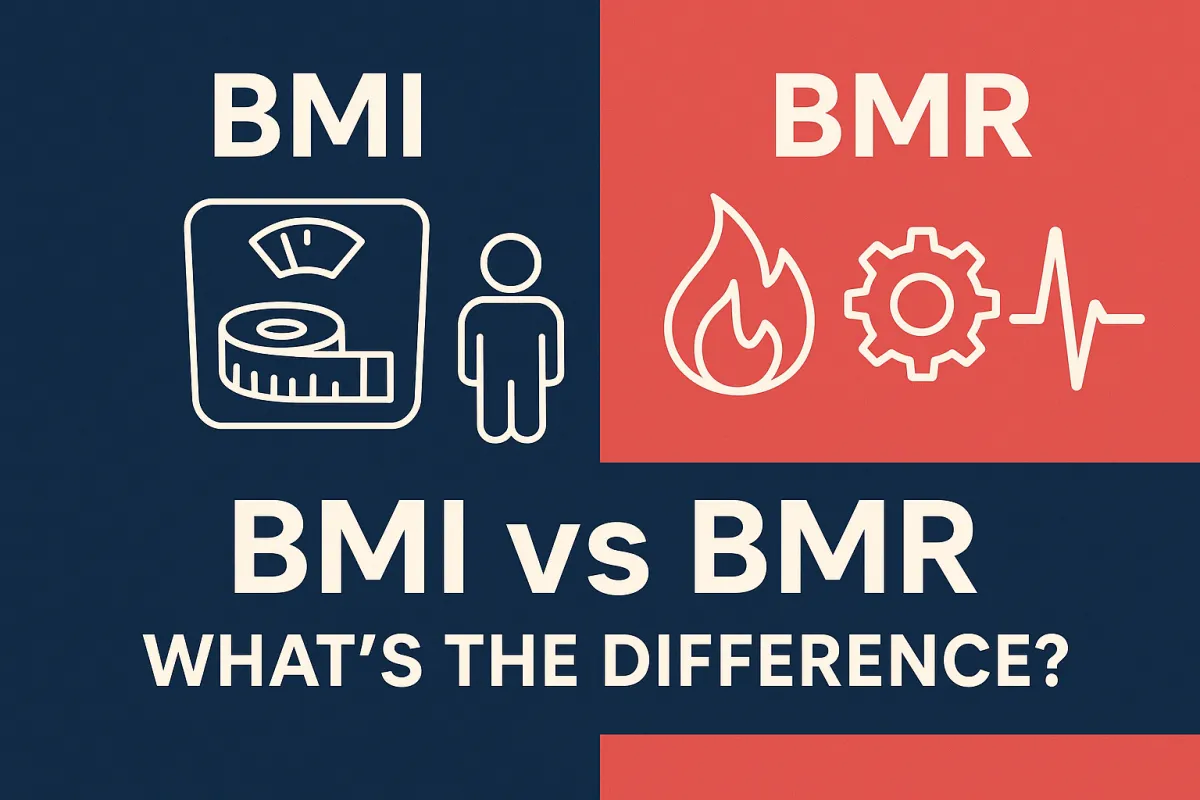Dynamic Fitness & Company Blog

BMI vs. BMR: What’s the Difference and Why It Matters
When people start their fitness journey, they often hear about BMI and BMR. These are two terms that sound similar but mean very different things. Understanding these can make a world of difference in how you approach your goals, whether it’s fat loss, muscle gain, or simply improving your overall health. Let’s break it down.
What Is BMI?
BMI (Body Mass Index) is a quick calculation using your height and weight to estimate whether you’re underweight, normal weight, overweight, or obese. You hear this term at your doctors appointments.
Formula:
BMI = weight (kg) ÷ height (m²)
For example:
A BMI of 18.5–24.9 = “normal weight”
25–29.9 = “overweight”
30+ = “obese”
Why it matters:
It’s a population level screening tool that doctors and researchers use.
It can give you a rough idea of where you stand in terms of body weight relative to your height.
The catch:
BMI does not account for muscle mass, body composition, or fat distribution. A muscular athlete and a sedentary individual with the same height/weight could both score as “overweight,” even though one is healthy and the other may not be.
What Is BMR?
BMR (Basal Metabolic Rate) is the number of calories your body burns at rest just to keep you alive by breathing, circulating blood, repairing cells, etc. Think of it as your “survival energy cost.”
Why it matters:
BMR is the foundation for calculating your daily calorie needs.
When you add in activity (walking, workouts, daily movement), you get TDEE (Total Daily Energy Expenditure).
Knowing your BMR allows you to tailor your nutrition for your goals:
Eat below your TDEE → fat loss
Eat at your TDEE → maintenance
Eat above your TDEE → muscle gain
Unlike BMI, BMR is highly individual. It depends on age, sex, weight, height, and muscle mass.
Why Knowing Your BMR Is More Important Than BMI
BMI tells you “where you fit in a chart.”
Useful, but surface-level.BMR tells you how your body actually functions day to day.
This is actionable as it helps you know how much fuel your body needs.
If you’re serious about results, focus on BMR (and TDEE). That’s what allows you to plan your nutrition scientifically rather than guessing.
Bottom Line
BMI = a quick screening tool, not the full story.
BMR = your personal metabolic blueprint.
Use BMI for context, but rely on BMR to build your strategy.
When you know your BMR, you stop playing the guessing game. Instead of wondering why your diet isn’t working, you’ll know exactly how to adjust your calories and finally see progress.
Ready to Take Action?
BMI may place you in a category, but it doesn’t define your health. Understanding your BMR gives you the data you need to fuel your body with intention and create lasting results.
Next Step: If you want to know your exact BMR and how to use it to align your nutrition with your goals, send me a DM with the word “BMR” or simply reply to this email. I’ll walk you through your numbers and outline a strategy built specifically for you.
🍽️ Download Your Free Meal Plan
Choose the version that fits your lifestyle best each plan includes sample meals with full macros:
🔹Standard Meal Plan – 1800 Calories
🥑 Keto Meal Plan – 1800 Calories

